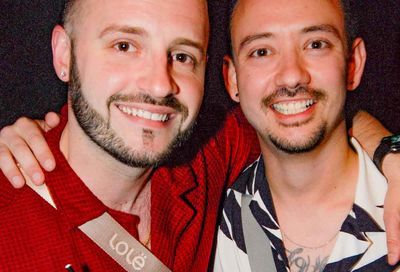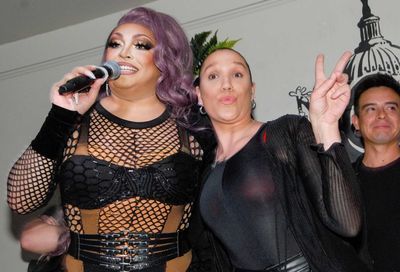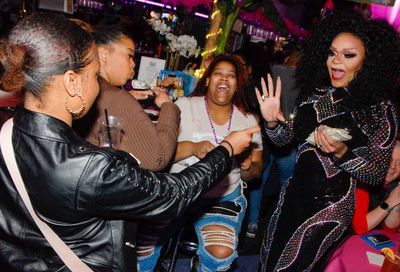Ripeness Is All
Commentary: Center Field
Equality California (EQCA) is not sitting back and waiting in the struggle to regain marriage equality in the Golden State. They are “ready and committed to fighting, persuading and working tirelessly — doing whatever it takes to win the right back as quickly as possible.” The question for them, in a smart analysis and plan released last week, is when a return to the ballot will give the best chance for victory. Their conclusion: 2012, not 2010.
EQCA offers many reasons why a rematch in 2010 is problematic. Recent years have seen a stall in the movement by California voters toward marriage equality. Experienced political consultants strongly feel “that neither the data nor their intuition supports moving forward with an initiative to win marriage back in 2010.” Among those who gave $50,000 or more for last year’s fight, EQCA found that most top donors will sit out a 2010 campaign, or, if a measure reaches the ballot, “will participate at a much reduced level of funding.”
The leading coalition partners in communities of color consider 15 months insufficient to build the cultural competency and trust required to change minds in those communities. LGBT family groups, noting the increased harassment faced by their school-age children in a heated campaign, argue that the costs of returning to the ballot would outweigh the benefits without a high confidence in victory.
Just for a professional signature-gathering effort to gain ballot access, $2-to-$3 million would be needed. Experienced hands estimate that an affirmative campaign would cost between $30 million and $50 million — a tall order so soon after last year’s loss — and the voter and funder fatigue from back-to-back losses would push the next try back at least four years. EQCA also points out the hardships being faced by social-service organizations due to the economic downturn, and questions the ethics of spending tens of millions on a 2010 campaign that would be dicey at best.
EQCA has found that for most voters, marriage is more a cultural than a political issue, and changing minds is a lot easier outside the heat of a campaign. Pushing the deadline back to 2012 will give the best chance for California’s 18,000 same-sex married couples to crystallize what is at stake, to connect with voters as only friends and family can, and to refute the wealth of misinformation.
The pro-equality numbers look 4 percent better in 2012 when you consider the higher turnout of young voters in a presidential election year, the young people who will join the voter rolls in the next 38 months, and the older people who will leave the voter rolls in the same period. That’s without considering the effect of any efforts at persuasion.
EQCA lists many puzzle pieces that must be assembled for success: “field, messaging and media, coalition and leadership outreach, activating our base, work in people of color communities, activating the faith community, supporting the grassroots, campus organizing, voter registration and coordination across the state.” Canvassers must be trained to listen as much as to convey the campaign message. EQCA is setting up a speakers bureau and training speakers, and is working with other groups doing fieldwork to coordinate scripts, voter targeting and message testing. An innovative online campaign is needed for areas in the state without a field-staff presence, since field offices are located where support for Proposition 8 was strongest.
An additional 24 months will give equality advocates more time to plan, organize, fundraise, build the grassroots, integrate allied efforts, recruit new allies and improve outreach to the people of color who comprise a majority of California’s population.
Those who insist on returning to the ballot in 2010 should explain how EQCA’s analysis is wrong, rather than merely serenade us with stirring rhetoric. Strategy is not a dirty word, and enthusiasm is not enough.
None of us with a stake in this fight wants to wait. Every day that I am separated from my own foreign partner is painful. Unfortunately, wanting is not having. There is a great deal of work remaining to overturn Proposition 8, not to mention the ballot fight looming this November in Maine, where our opponents hold a fundraising edge. Let us do the preparation needed to win a lasting victory in California, and not let our hearts rule our heads.
Richard J. Rosendall is a writer and activist whose work has appeared on Salon.com and the Independent Gay Forum. He can be reached at rrosendall@starpower.net.
Support Metro Weekly’s Journalism
These are challenging times for news organizations. And yet it’s crucial we stay active and provide vital resources and information to both our local readers and the world. So won’t you please take a moment and consider supporting Metro Weekly with a membership? For as little as $5 a month, you can help ensure Metro Weekly magazine and MetroWeekly.com remain free, viable resources as we provide the best, most diverse, culturally-resonant LGBTQ coverage in both the D.C. region and around the world. Memberships come with exclusive perks and discounts, your own personal digital delivery of each week’s magazine (and an archive), access to our Member's Lounge when it launches this fall, and exclusive members-only items like Metro Weekly Membership Mugs and Tote Bags! Check out all our membership levels here and please join us today!





















